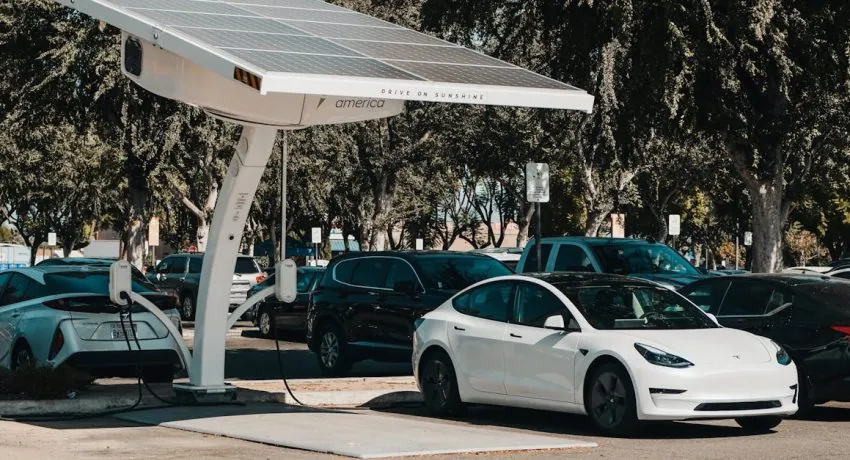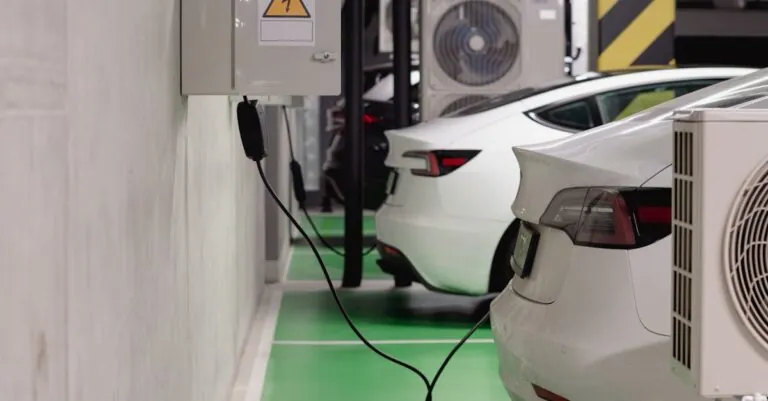Battery cars are zooming into the spotlight, and it’s about time! With gas prices soaring higher than a kite, these electric wonders are here to save the day—and your wallet. Imagine never having to stop at a gas station again; instead, just plug in and relax while your car charges up like a smartphone ready for a binge-watch session.
Table of Contents
ToggleOverview of Battery Cars
Battery cars, specifically battery electric vehicles (BEVs), operate solely on electric power. These vehicles receive energy from rechargeable batteries, eliminating dependence on gasoline or diesel fuel. Charging at home provides convenience, allowing owners to start each day with a full battery. In contrast to traditional vehicles, battery cars produce zero tailpipe emissions, contributing to improved air quality.
With advancements in battery technology, battery cars now offer longer ranges. Many models exceed 300 miles on a single charge, addressing previous concerns about range anxiety. Fast charging stations have also become more widespread, enabling drivers to recharge their vehicles in under an hour at strategic locations.
Cost savings present another significant benefit. Operating a battery electric vehicle usually costs less per mile compared to gasoline. Maintenance expenses also decrease since battery cars have fewer moving parts than internal combustion engine vehicles, reducing the need for oil changes or exhaust system repairs.
Consumer interest continues to rise, driven by government incentives and the growing focus on sustainability. Many regions offer tax credits or rebates for purchasing battery electric vehicles, making them more financially attractive. As charging infrastructure expands, more potential buyers feel confident in transitioning to battery cars.
Manufacturers are investing heavily in research and development, leading to a broader range of options. Model variety ranges from compact cars to SUVs, accommodating different consumer preferences. The shift towards battery electric vehicles represents a significant movement within the automotive industry.
Benefits of Battery Cars
Battery electric cars offer significant advantages, especially in an era of rising gas prices and environmental concern. These vehicles enhance convenience and sustainability, appealing to a broad range of consumers.
Environmental Impact
Zero tailpipe emissions characterize battery electric vehicles, significantly improving air quality. Less reliance on fossil fuels translates into a lower carbon footprint, which benefits the planet. Many cities experience reduced pollution levels as more drivers switch to BEVs. Advancements in battery technology also promote broader adoption of renewable energy sources for charging. The overall reduction in greenhouse gases plays a crucial role in combating climate change.
Economic Advantages
Operating costs for battery electric vehicles are generally lower compared to gasoline vehicles. Per-mile energy expenses typically fall below those for fuel, yielding substantial savings over time. Maintenance costs diminish because electric engines contain fewer moving parts. Government incentives and tax credits further enhance affordability for consumers considering these vehicles. Charging at home provides both convenience and cost-effectiveness, with owners starting each day with a full battery for little expense.
Challenges Faced by Battery Cars
Battery electric vehicles (BEVs) face several challenges that impact their adoption rate. Understanding these issues helps clarify ongoing discussions about the transition to electric mobility.
Infrastructure Limitations
Charging infrastructure suffers from uneven development across regions. Urban areas tend to have better access to charging stations than rural locations. Many communities lack adequate fast-charging points, making long-distance travel difficult. A higher number of charging stations correlates with increased consumer confidence. As of 2023, the United States had over 100,000 charging stations, yet demand continues to grow. Some areas experience charging congestion during peak hours, leading to longer wait times. Expansion of charging networks is essential for accommodating the rising number of BEVs.
Range Anxiety
Range anxiety remains a significant concern among potential electric vehicle owners. Many drivers worry about running out of battery power before reaching their destination. Most modern BEVs can travel over 300 miles on a single charge, but perceptions still linger. Consumers prioritize reassurance about their vehicle’s range, influencing their purchasing decisions. Solutions include enhanced battery technology and more accessible charging infrastructure. Frequent travelers experience more anxiety due to limited charging options along their routes. Addressing range anxiety directly fosters greater acceptance of electric vehicles.
Technological Innovations in Battery Cars
Innovations in battery technology and charging solutions play a crucial role in the growth of battery electric vehicles (BEVs).
Advances in Battery Technology
Recent advancements in battery technology significantly enhance the performance of BEVs. Lithium-ion batteries now offer higher energy density, allowing vehicles to travel further between charges. With some models exceeding 300 miles per charge, these improvements eliminate range anxiety for many drivers. Solid-state batteries are also emerging, promising faster charging times and increased safety by reducing flammability risks. These innovations lead to lighter battery packs, which improve overall efficiency and handling. Manufacturers continue to invest heavily in research, aiming to optimize energy storage and extend battery life.
Charging Solutions
Expanding charging infrastructure is vital for supporting BEV adoption. Fast charging stations are becoming more widespread, often replenishing 80% of battery capacity within 30 minutes. Networks like Tesla’s Supercharger allow for strategic long-distance travel, decreasing downtime on journeys. Home charging units are seeing increased installation, emphasizing convenience for everyday users. Public charging solutions are evolving, too, with many cities providing charging options in parking lots and shopping centers. Various charging standards are being adopted, facilitating compatibility among different vehicle models and enhancing user experiences.
The Future of Battery Cars
Battery electric vehicles (BEVs) continue to gain traction as technology advances. Many companies are focused on enhancing battery efficiency and range. Recent developments in solid-state batteries promise improved safety and performance.
Manufacturers are expanding their electric vehicle lineups to include diverse models, catering to various consumer preferences. Commuters often appreciate the compact cars for urban driving, while families may prefer larger SUVs. Each option reflects a shift towards sustainable transportation.
Charging infrastructure plays a critical role in battery car adoption. Cities are installing more public charging stations, significantly easing range anxiety for potential buyers. EV owners benefit from the growing number of options, including home charging units. These solutions help eliminate barriers to ownership and encourage adoption.
Environmental benefits remain a cornerstone of discussions surrounding BEVs. Transitioning to electric vehicles contributes to reduced greenhouse gas emissions. As more consumers switch to BEVs, there is a noticeable shift toward renewable energy sources for electricity generation.
Government incentives enhance the allure of battery cars. Tax credits and rebates often lower the initial purchase price, making electric vehicles more accessible. With affordability issues lessened, buyers increasingly consider making the switch.
Addressing challenges related to infrastructure and technology is key to broader acceptance. Many experts believe improved charging solutions and battery advancements will alleviate concerns surrounding long-distance travel. A future with widespread BEV adoption appears promising as innovations drive the industry forward.
Battery electric vehicles are reshaping the automotive landscape. With their environmental benefits and cost savings they present a compelling choice for many consumers. As technology evolves and infrastructure improves the barriers to adoption are gradually diminishing.
The future of BEVs looks bright with ongoing innovations in battery technology and charging solutions. As manufacturers expand their offerings to meet diverse consumer needs the shift towards electric mobility is set to accelerate. The combination of enhanced performance and growing public awareness will likely drive the widespread acceptance of battery cars in the coming years.




